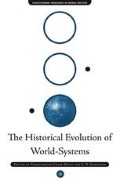Abstract
After the spectacular conquest of China and most of the rest of the known world, the Mongols settled down to rule the empire they had won. In China, this was not an easy or rewarding endeavor. Fierce local resistance gave way to resignation, but full tranquility was difficult to win. Shaky administration, thanks in part to the excessive fondness of the Mongol elite for alcohol and feasting, led to inexorable decline in the mid-fourteenth century. By 1368, the strange, brilliant, and slightly mad Zhu Yuanzhang could unite China against the Mongols. Zhu founded the Ming Dynasty (1368–1644). The Mongols moved back to the steppes with evident signs of relief. Their empire continued to flourish there, remaining a formidable threat to China for another century.
Access this chapter
Tax calculation will be finalised at checkout
Purchases are for personal use only
Preview
Unable to display preview. Download preview PDF.
References
Anderson, E. N. 1988. “The Food of China.” New Haven: Yale University Press.
Arano, Luisa Cogliati. 1976. “The Medieval Tacuinum Sanitatis.” New York: George Braziller. (Tr. Oscar Ratti and Adele Westbrook; Italian orig. ca. 1975.)
Braudel, Fernand. 1972. “The Mediterranean and the Mediterranean World in the Age of Philip II.” New York: Harper and Row. (Fr. orig. 1966.)
Buell, Paul D., E. N. Anderson, and Charles Perry. 2000. “A Soup for the Qan.” London: Kegan Paul International.
Dols, Michael. 1977. “The Black Death in the Middle East.” Princeton, NJ: Princeton University Press.
Geertz, Clifford. 1963. “Agricultural Involution.” Berkeley: University of California Press.
Harington, John. N.d. (1966; orig. 1607). “The School of Salernum: Regimen Sanitatis Salerni.” Salerno: Ente Provinciale per il Turismo (Salerno Tourist Bureau. Modern edition; Latin provided with the English, allowing the reader to see how Harington Added his own inimitable spark to the old rule.)
Huang, Philip. 1990. “The Peasant Family and Rural Development in the Yangzi Delta, 1350–1988.” Stanford: Stanford University Press.
Jaramillo, Cleofas. 1981. “The Genuine New Mexico Tasty Recipes.” Santa Fe: Ancient City Press. (Orig. 1942.)
Jia Ming. 1988. “Yinshi Xuzhi.” Beijing: People’s Publishing Co.
Kong, Y. C. 1996. Huihui Yaofang. (In Chinese with English-language appendices.) Hong Kong: author. (Orig. ca. 1400.)
Mote, Frederick. 1999. “Imperial China, 900–1800.” Cambridge, MA: Harvard University Press.
Ratchnevsky, Paul. 1991. “Genghis Khan.” Oxford: Blackwell.
Rossabi, Morris. 1998. “Khubilai Khan.” Berkeley: University of California Press.
Editor information
Editors and Affiliations
Copyright information
© 2005 Christopher Chase-Dunn and E. N. Anderson
About this chapter
Cite this chapter
Anderson, E.N. (2005). Lamb, Rice, and Hegemonic Decline: The Mongol Empire in the Fourteenth Century. In: Chase-Dunn, C., Anderson, E.N. (eds) The Historical Evolution of World-Systems. The Evolutionary Processes in World Politics Series. Palgrave Macmillan, New York. https://doi.org/10.1057/9781403980526_6
Download citation
DOI: https://doi.org/10.1057/9781403980526_6
Publisher Name: Palgrave Macmillan, New York
Print ISBN: 978-1-349-52926-1
Online ISBN: 978-1-4039-8052-6
eBook Packages: Palgrave Political & Intern. Studies CollectionPolitical Science and International Studies (R0)

